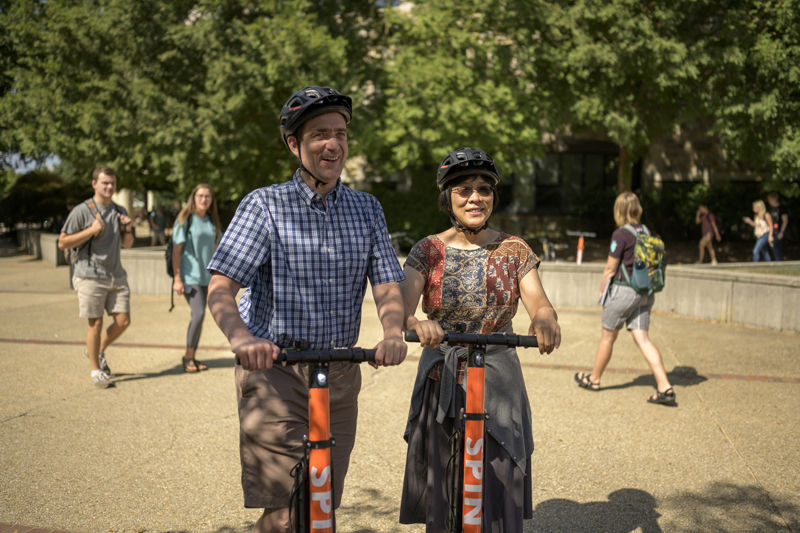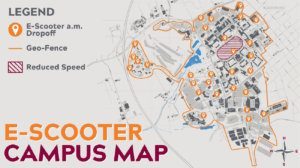
Some people might think scooters on D.C.-area roadways are a menace, but a study just launched by Virginia Tech aims to help make their use safer.
The school’s Blacksburg, Virginia, campus has 300 electric scooters equipped with forward-facing cameras and sensors that will provide researchers with hard data if there’s a wreck.
“Was it an issue about driver behavior? Was it an issue about the infrastructure they were riding through? Or is it something about the scooter design that maybe led to that event?” said Mike Mollenhauer, director for technology implementation at the Virginia Tech Transportation Institute, which is conducting the study in partnership with Spin.
Efforts to improve safety and shape policy might include for example, using geofencing to limit maximum scooter speeds where study findings determined congestion is too high.

The study will last a year and a half and include 12 months of data collected from September 2019 to September 2020, followed by evaluations and recommendations. The goal is to improve safety for scooter riders as well as pedestrians, drivers and bicyclists with whom they share the road.
“We’re coming up with guidelines and outcomes from this,” Mollenhauer said. “On where we have applied a countermeasure, things have gotten better or we have resolved a safety issue.”
Data collected through questionnaires will gauge public opinion and community impact before, during and after the study period. Mollenhauer believes study findings will help shape policy and best practices for scooter use around the nation and world.
Scooters and micro-mobility promise to flourish as communities reluctant or unable to build new roads search for ways to cope with less parking, heavier traffic and more congestion, while offering commuters more options.
“Let’s say I take transit to my end destination and I still have a mile to go before I get to my office or my home,” Mollenhauer said. “Scooters provide a really nice opportunity to cover that ground in a reasonable amount of time” with a relatively low impact on the environment. “It’s definitely a very positive option, we think.”








